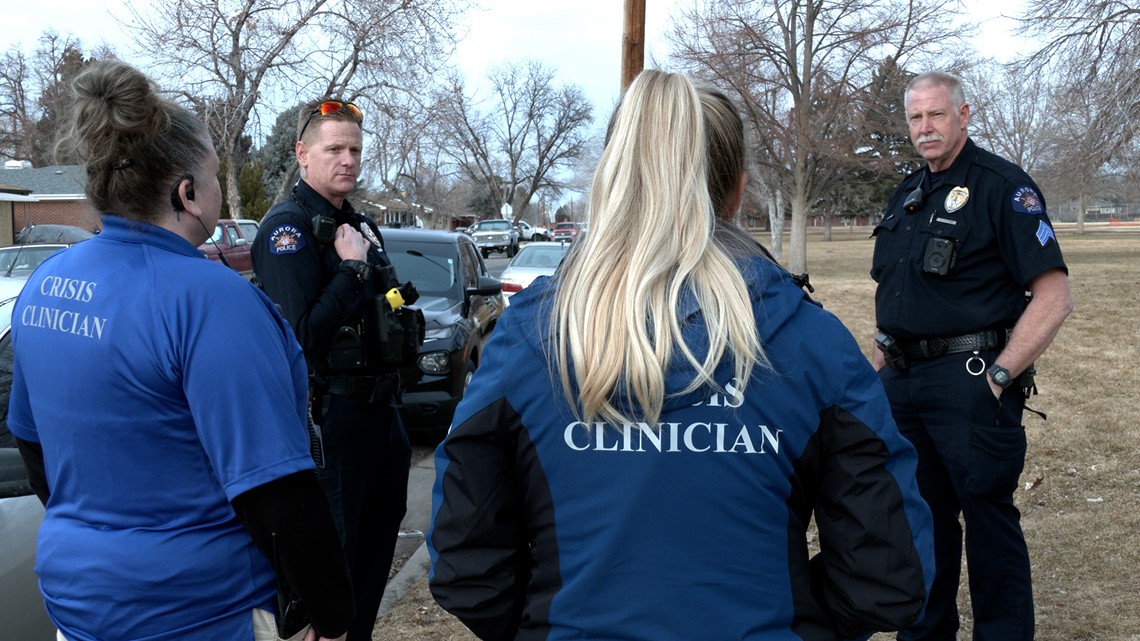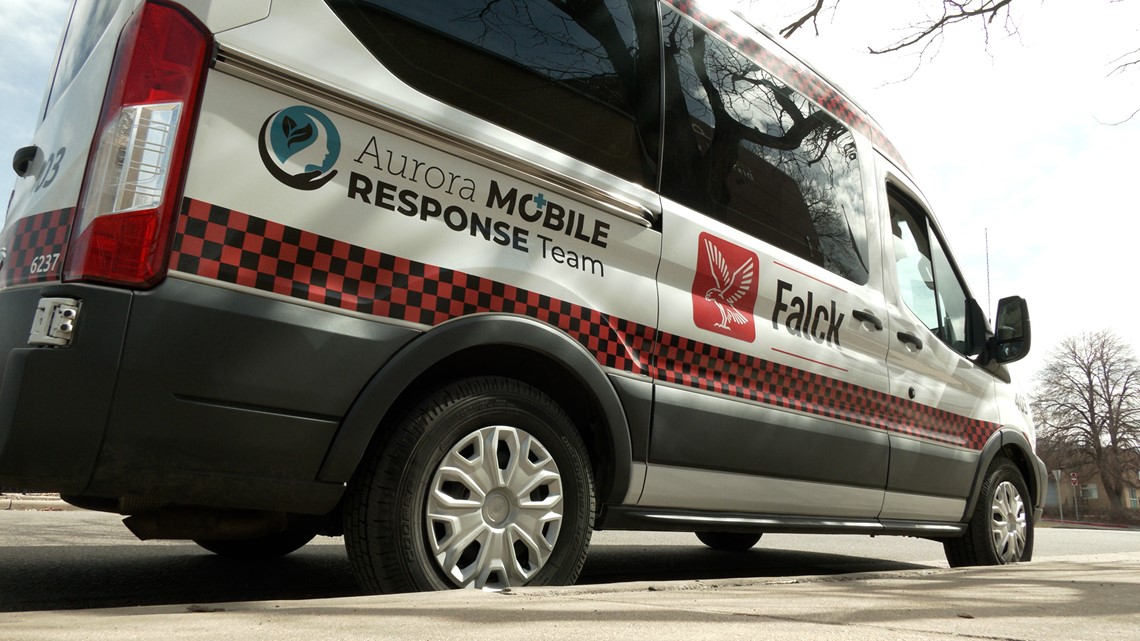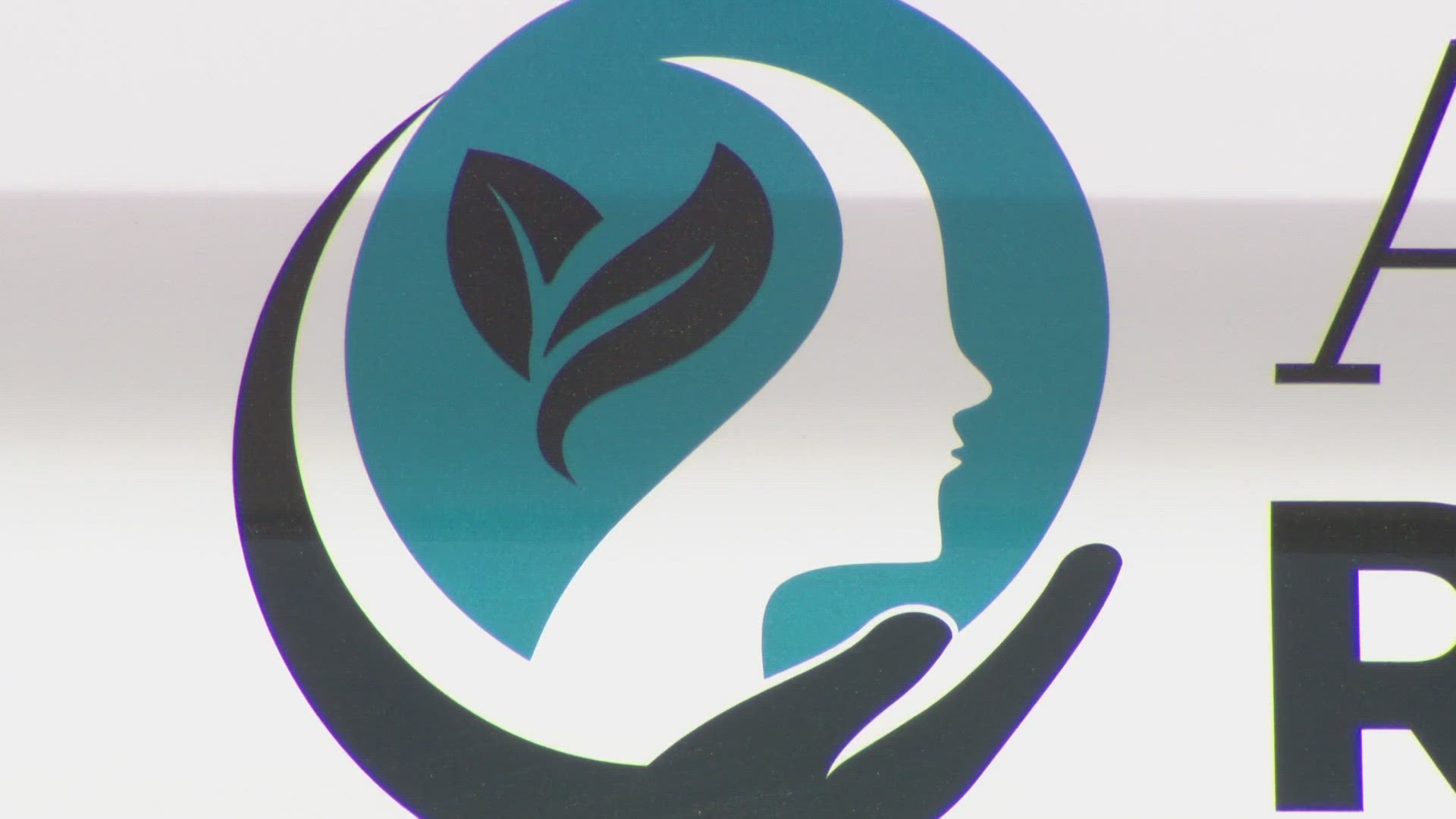AURORA, Colo. — In October, the City of Aurora said it would work with UCHealth to hire employees for its Crisis Response Team, which went for more than a month without full-time clinicians.
"The main thing that we missed was just the manpower," said Courtney Tassin, the crisis intervention program manager for the City of Aurora.
Tassin is a trained clinician and responded to calls with officers when available during the period of being understaffed. The team has not had a full staff since 2017.
But on Wednesday, Aurora provided a closer look at the six new clinicians now hired in partnership with UCHealth to respond with officers on certain mental health calls, after an audit presented last year found that Aurora lacked formal procedures for handling calls for persons in crisis.
"Any time we're going through any kind of betterment or audit itself, there's going to be challenges and there's going to be things that we're going to have to do to implement," Tassin said. "And sometimes that means a pause in service. But what that also means is that we can come back so much stronger."
The team of clinicians are mainly separated between the city's Aurora Mobile Response Team (AMRT), and Crisis Response team.
The AMRT is where a clinician is paired with an EMT to respond to "lower intensity behavioral health calls" that come through 911.
The Crisis Response Team is where clinicians respond with officers on "higher intensity calls" that may involve weapons, violence or other "criminal action."


Addressing a list of issues
In October, 9NEWS reported that the audit found in one random week, more than 115 calls involved a person in crisis which the team could have responded to.
However, the amount of mental health calls that come into Aurora every week is unknown because, the audit also found, the city doesn't keep track of that statistic.
However, Tassin explained that a data analyst was recently hired to change that, and they hope to have some sort of data on this in the next year.
The audit also noted that Aurora 911 "does not have protocols to determine whether a mental health crisis is occurring."
Tassin explained that their team have worked out a streamlined way to better "self-dispatch" to calls.
"So in every single police car or even in our AMRT commands, we have a police MDC (mobile digital communicator) - or the computers - and they're looking at the calls for service that are coming through on the screen and they're able to say, okay, that looks like a call for us," she explained.
While Tassin argues that staffing challenges are not unique to them, she remains optimistic about the future of the team.
"We have come back so much stronger," said Tassin.


An impact in the field
Jennifer Fierberg is a clinical supervisor for the teams and previously worked in crisis response in Parker and Denver.
She explained that the clinicians have been cross-trained to respond to different calls, but ultimately the goal is to provide guidance for officers when needed depending on the situation.
"Bringing a clinician on the call with the officers provides a trauma informed care model to people who are in crisis," she said. "And so it provides a softer approach. The officers are specialty trained in the crisis response system. And so having two people there that are focused on mental health and on providing a gentle approach with resolving this crisis, either on scene or with the appropriate follow-up resources, provides for them to not have to call 911 [and] maybe next time they're in crisis that they'll have the resources they need."
Their training was completed at the end of February, Fierberg said. They have been going out with officers since.
"They have an understanding and the resources to help talk these people down," said Tom Graham, a sergeant of the Crisis Response Team. "But having the clinicians makes things that much easier and just brings in that many more resources for us."
He said during the time period when the teams were short-staffed, many officers were going to several calls for mental health crisis a day, and believes having clinicians to help them will provide a break from those types of calls for other officers.
"They'll debrief the call after they're done, make sure it went well and make sure he's okay with how things turned out," he said.
A spokesperson for UCHealth told 9NEWS at a press availability event Wednesday that UCHealth is paying the clinicians.
SUGGESTED VIDEOS: Latest from 9NEWS

